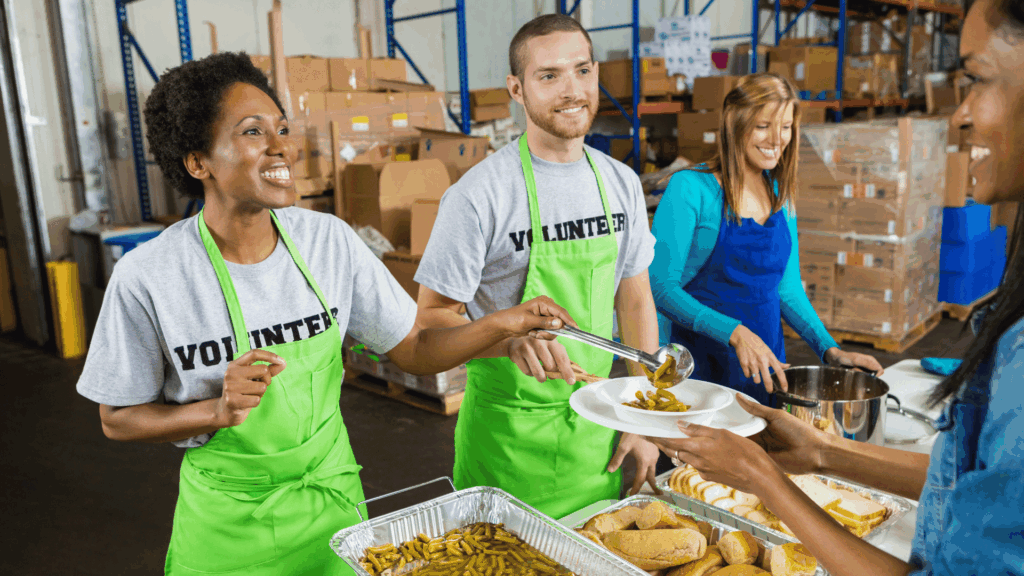
As societies across the world continue to experience increasing populations of older adults, the role of older adults in community life becomes increasingly vital. Older adults are not only oftentimes recipients of care and support but also powerful contributors to the well-being of their communities. Participating in community service can profoundly enhance the lives of older adults while simultaneously strengthening the social fabric, whether it is older adults contributing to their community through volunteering or younger adults volunteering their time to work with older adults.
Seniors Volunteering: Why it Matters
One of the most significant benefits of community service for older adults is the reinforcement of purpose, identity, and social connection. Retirement, the loss of loved ones, or changes in family roles can leave many seniors searching for new meaning and engagement. Volunteering provides valuable opportunities to connect with others, contribute skills, and remain active participants in society. Studies have shown that older adults who volunteer tend to have improved mental health, as they experience greater life satisfaction and overall well-being. Volunteering enhances self-perception and reduces depressive symptoms by fostering positive attitudes toward aging, which can also lead to cognitive benefits.
Beyond mental health, community service also supports one’s physical health and longevity. A longitudinal study found that adults over 50 who volunteered at least 100 hours per year had a lower risk of mortality, fewer functional limitations, and higher physical activity levels, contributing to improved mental health outcomes. To corroborate, another research study by Carnegie Mellon showed that volunteering about 200 hours per year is linked to a 40 percent lower risk of developing hypertension. This makes a lot of sense, as volunteering and being an active participant in one’s community often require some level of physical activity in a fun, engaging, and meaningful way.
Moreover, community service gives older adults a greater voice in shaping the policies and programs that affect their lives. By serving on advisory boards or local councils, they can ensure that community services such as public transportation, accessibility, and healthcare are designed with the needs of older adults in mind. Research has shown that when seniors are actively involved in designing and evaluating community programs, those programs are more relevant and sustainable.
Volunteering for Seniors: Its Impact
Community service plays a vital role in supporting older adults and fostering stronger, more compassionate communities. Many seniors face challenges such as social isolation, limited mobility, and difficulty accessing essential resources. Through community service initiatives, such as visiting programs, senior meal deliveries, transportation assistance, or intergenerational activities, volunteers can help meet these needs while building meaningful connections.
These efforts not only improve older adults’ quality of life by reducing loneliness and promoting independence but also remind them that they remain valued members of society. Building intergenerational connections has positive impacts for both older adults and younger adults, helping to improve mental health, sense of belonging, and overall joy.
Conversations to Remember (C2R) is a leader in fostering intergenerational connections through its virtual visit volunteer program. Young adults participate in video visits with seniors every week on the C2R online platform. Each week, the volunteers return to meet with the same senior, to share stories about what is going on in their lives, in order to develop relationships between young adults and seniors.
The impact of such service extends beyond the seniors themselves. When communities invest time and care into their older residents, they cultivate empathy, bridge generational divides, and strengthen civic bonds. Younger volunteers, in particular, gain valuable insight into aging and develop greater respect and understanding for older generations. In turn, older adults often share wisdom, stories, and life experiences that enrich the lives of volunteers. By coming together through community service, we create a more inclusive society, one that honors aging as a shared human experience and ensures that no one grows old feeling forgotten.
Everyone Benefits
Community service, in general, is good for society, as it helps address critical social challenges. Many societal needs, such as food insecurity, education, and health outreach, depend heavily on people working in the community. Community service provides volunteers with an avenue for purpose, belonging, and continued growth, while also benefiting both mental and physical health.
So, what are you waiting for? Your impact starts now!
Sources:
- Evaluating the impact of engaging older adults and service providers as research partners in the co-design of a community mobility-promoting program | BMC
- The Impact of Volunteering and Its Characteristics on Well-being After State Pension Age | NIH
- Volunteering and Subsequent Health and Well-being in Older Adults: An Outcome-wide Longitudinal Approach | NIH
- Volunteering Is Good for Your Health | Community Memorial Healthcare
- Volunteering, Self-Perceptions of Aging, and Mental Health in Later Life | NIH
